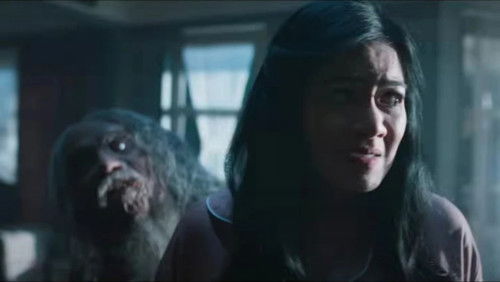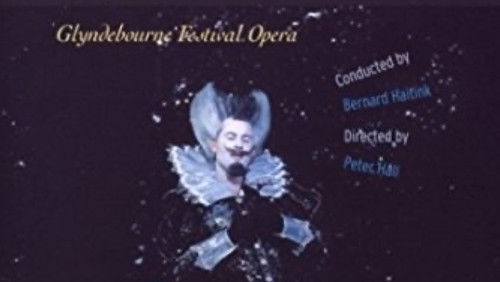Behold the Man (1935)
8KBehold the Man (1935). 1h 35m
“This impressively-mounted but curiously little-known French production is notable as the first u0026quot;Talkieu0026quot; specifically dealing with the life of Jesus Christ; as far as I know, there has been only one Italian TV screening of it in my neck of the woods and that happened all the way back in the mid-1980s! Somehow I got the itch to watch it on last yearu0026#39;s Good Friday and, requesting it on a particularly providential website that will remain unnamed here, I was soon supplied with first an unsubtitled copy, then another sporting Italian ones and, much later, one bearing English subtitles! Being fluent in Italian, I had no qualms about seizing the second option immediately; actually, the Italian-dubbed print of the film is also included on the copy I acquired and, somewhat amusingly, the Italian subtitles on the original French version – which is how I eventually watched GOLGOTHA on this yearu0026#39;s Easter Saturday – are a transcript of that translation (meaning that a few added lines of dialogue in Italian are kept in when there are no French counterparts for them)! The film was apparently first released as ECCE HOMO and that is how it is actually known (as it were) in the English-speaking world, i.e. BEHOLD THE MAN. Distinguished film-maker Julien Duvivier was truly at the top of his game during this finest period in his career that lasted for twenty years (1930-49); his impressively fluid direction here yields any number of striking compositions – right from that remarkably long opening tracking shot over the walls of Jerusalem – which truly elevate the film towards the upper echelons within the Biblical subgenre. Another significant contribution comes via Jacques Ibertu0026#39;s powerful score that is virtually a constant companion to the on screen images (so much so that Ibert is atypically billed right under Duvivier in the opening credits)! Besides, it seems very appropriate that the music makes use of the celebrated elegiac piece u0026quot;Dies Iraeu0026quot;– given that Duvivier is here clearly under the influence of Carl Theodor Dreyeru0026#39;s revolutionary use of the close-up in his Silent masterpiece THE PASSION OF JOAN OF ARC (1928) and that Dreyeru0026#39;s subsequent spiritual work DAY OF WRATH (1943) was actually retitled DIES IRAE for Italian theatrical distribution purposes! The cast includes several notable names in French cinema: the teaming of Jean Gabin and Edwige Feuilliere, as Pontius Pilate and his wife Claudia respectively, is very different from their subsequent one in Claude Autant-Larau0026#39;s LOVE IS MY PROFESSION (1958) that I watched earlier this year; Harry Bauru0026#39;s Herod Antipas, then, is initially in awe of his infamous defendant but is eventually disenchanted with Christu0026#39;s silent defiance. I have purposefully left any comment about the actor playing Jesus Himself for last: Robert Le Viganu0026#39;s Christ must surely be the most haunted and haunting one ever caught on celluloid (perhaps never more so than when He comes face to face with His heartbroken mother on the way to Golgotha) – could lyricist supremo Tim Rice perhaps have been thinking of his performance when he penned a particular phrase in the song u0026quot;Pilateu0026#39;s Dreamu0026quot; for the popular Jesus Christ SUPERSTAR rock opera? Duvivier chooses to focus on the final week of Jesusu0026#39; passage on Earth – from Palm Sunday to just after the Resurrection – but, although Christu0026#39;s presence permeates every foot of the film (with the Jewish elders conniving against and the commoners exalting Him), the director cleverly withholds His first truly distinct appearance until the 20-minute mark (during the remarkably P.O.V.-shot hubris at the Temple)…but the audience is made to wait a further 6 minutes before we get a bona-fide close-up of the actor playing Him! Also noteworthy is that fact that, for being the first Sound film made about Christ, rather than focus on His teachings we get to experience Him through how others (Caiaphas, Judas Iscariot, Pontius Pilate, Herod Antipas, a fainting spectator at the flagellation, the distraught disciples at Emmaus, etc.) see Him. To get to Le Vigan once more for a minute: although I have watched, or have at my disposal, 10 other films in which he appeared, this is the first time that his presence has impressed itself upon me and, sadly, his off-screen life was as equally tragic as the part he played in GOLGOTHA itself – openly advocating his anti-Semitism and collaborating with the Nazis during their occupation of Paris, he was eventually stripped of his French citizenship and had all his assets confiscated, was imprisoned to ten yearsu0026#39; hard labor (of which he served three) until, in late 1972, he ended his days impoverished and insane in Argentina!!”









